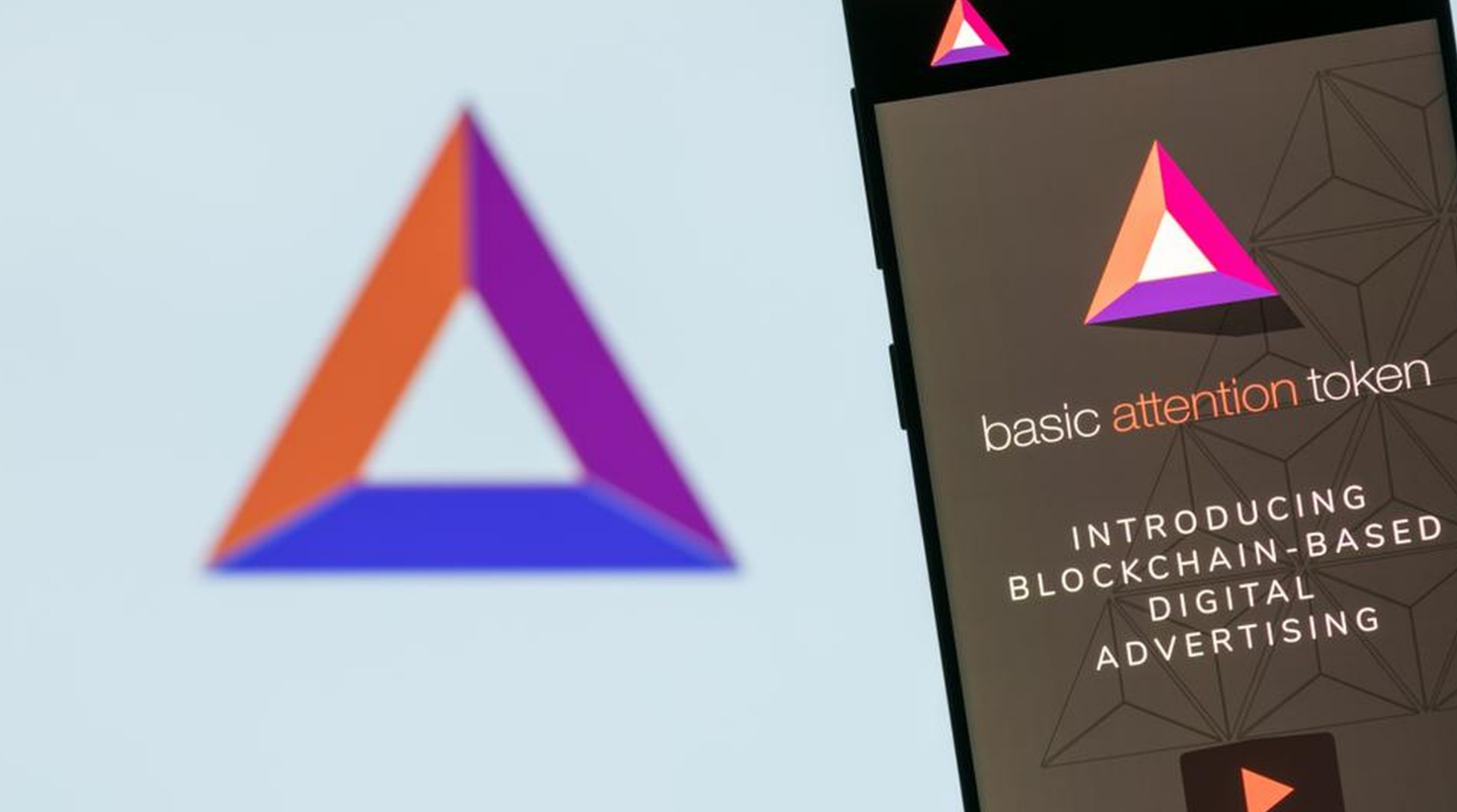
Blockchain branding is a transformative approach for companies aiming to foster transparency and trust in the digital age. Adopting blockchain for brand transparency is a strategic commitment to building trust and aligning with modern consumer expectations for openness and accountability.
As the technology evolves, brands can use it to differentiate themselves, inspire loyalty, and build resilient communities around their values and transparency practices. This approach helps brands stay competitive in an environment where trust is increasingly essential for long-term success.
Why Blockchain Branding Matters
Blockchain branding is crucial because it aligns with the growing consumer demand for transparency, trust, and security in a digital-first world. By utilizing blockchain, brands can provide immutable, transparent records of transactions and product origins, allowing consumers to verify claims about product quality, sourcing, and ethical practices without reliance on intermediaries. This capability is especially impactful for brands in sectors like luxury goods, supply chains, and finance, where customer trust in authenticity and ethical sourcing is essential.
One core advantage of blockchain branding lies in decentralization, which reduces reliance on centralized authorities for verifying transactions. This structure makes interactions between consumers and brands more direct, fostering a trust-based relationship free from potential interference by third parties. For instance, brands can use smart contracts to guarantee certain product standards automatically, further solidifying consumer trust by embedding transparency directly into the transaction itself.
Blockchain also offers a valuable solution to issues surrounding data security and privacy, allowing consumers more control over their personal data. Instead of revealing extensive personal information in each interaction, blockchain systems enable selective data sharing, enhancing consumer confidence in how brands handle their information. For businesses, this setup not only reduces the risk of data breaches but also demonstrates a commitment to privacy, a growing concern in the modern digital landscape.
Core Elements of Blockchain Branding
The core elements of blockchain branding revolve around transparency, security, user empowerment, and community trust. Each of these pillars provides unique benefits that enhance the brand’s credibility and foster consumer loyalty. Here’s how they shape blockchain-based brand identities:
1. Transparency as a Core Brand Value
Transparency is fundamental in blockchain branding. Unlike traditional branding, blockchain allows consumers to verify claims independently by accessing tamper-proof, decentralized ledgers that document a product’s origin, transaction history, or even certifications. This traceability is highly valued in sectors like luxury goods, pharmaceuticals, and food safety, where authenticity and ethical sourcing matter deeply to consumers. For example, luxury brands using blockchain can trace each item’s production journey, giving consumers full visibility of their products’ origins and ensuring the integrity of ethical sourcing claims.
2. Enhanced Security and Privacy
Blockchain’s security framework—enabled by cryptographic verification and decentralized storage—offers brands a powerful way to protect consumer data. Security is increasingly a brand differentiator, as more customers demand assurances that their personal data is safe. Through decentralized control, blockchain prevents unauthorized data access and reduces the likelihood of large-scale breaches, strengthening consumer trust and loyalty.
Additionally, blockchain's selective data-sharing capabilities allow consumers to share only necessary information, enhancing privacy and control in a digital world often fraught with data privacy issues.
3. Empowering Consumers with Ownership
Blockchain’s ability to facilitate ownership is transformative, particularly through the use of tokens and NFTs (non-fungible tokens). Brands can engage consumers by granting them ownership over digital assets, exclusive rewards, or participation rights in loyalty programs. These tokens can represent unique items or privileges, fostering a sense of community and personal investment. This empowerment drives deeper loyalty as consumers feel like active participants in the brand rather than mere customers.
4. Decentralization and Community Trust
Decentralization means no single entity controls the brand’s interactions, which can foster a stronger sense of trust and engagement among consumers. In a decentralized model, brands can implement community-driven decision-making processes, allowing consumers a voice in shaping the brand’s direction. This transparency and inclusivity appeal particularly to audiences valuing autonomy and accountability. By building decentralized communities, brands reinforce authentic, trust-based relationships that can significantly enhance consumer loyalty over time.
5. Smart Contracts for Accountability
Smart contracts add an extra layer of accountability in blockchain branding. These self-executing contracts ensure that specific conditions are met automatically, such as quality standards or delivery timelines. For brands, this functionality enables direct, transparent agreements with customers, improving trust and minimizing the need for third-party verification. This automated commitment to customer promises supports long-term trust, as customers see that brands are held accountable without manual intervention.
Building a Blockchain Brand: Key Strategies

Building a blockchain brand requires a well-rounded strategy that leverages blockchain’s unique attributes while engaging a diverse digital audience. Here’s a look at the key strategies to establish and grow a blockchain brand:
1. Establish Transparency and Build Trust
Transparency is the backbone of blockchain, and brands must communicate openly to foster consumer trust. This can be achieved by:
- Sharing verifiable information on blockchain transactions and product origins.
- Regularly updating the community on project developments.
- Providing a transparent view of team members, partnerships, and roadmap goals, which reassures users and builds brand credibility.
2. Develop an Engaged Community
Community building is at the heart of blockchain branding, as a loyal audience can amplify brand visibility and advocacy:
- Host regular discussions and AMAs (Ask Me Anything) on platforms like Discord or Twitter.
- Encourage feedback loops to improve products based on user input.
- Involve the community in decision-making through DAOs or governance tokens, creating a sense of ownership.
3. Embrace Decentralization and User Empowerment
Decentralization aligns blockchain branding with core user autonomy principles, creating more authentic consumer relationships. Key methods include:
- Leveraging token economies or NFTs to grant access to exclusive content or voting rights.
- Offering governance tokens that enable users to influence the brand's direction.
- Empowering users to shape the brand experience actively, turning customers into brand advocates.
4. Leverage Storytelling to Communicate Your Mission
An authentic brand story can create emotional connections and make the brand more relatable. Elements of effective storytelling include:
- Founder stories that reflect brand values and mission.
- User testimonials showcasing real-life benefits.
- Engaging content such as videos, infographics, and articles that explain complex concepts simply.
5. Use Strategic Partnerships and Collaborations
Partnerships with well-regarded brands or influencers enhance brand credibility and expand reach:
- Identify potential collaborators who align with the brand’s values.
- Co-host events, webinars, or social media takeovers to reach new audiences.
- Use cross-promotion strategies to gain visibility within the Web3 community.
Collaborating with blockchain influencers allows brands to reach and educate audiences within the Web3 ecosystem, enhancing credibility and visibility through trusted voices in the industry.
6. Simplify and Educate
Educating consumers on blockchain technology builds trust by lowering the complexity barrier:
- Create accessible content, such as how-to guides or explainer videos.
- Offer tutorials or interactive sessions to help new users understand the technology.
- Avoid jargon and use simple language to make blockchain concepts approachable.
7. Maintain Consistent Brand Identity and Messaging
Consistency in branding helps establish reliability and recognition across all channels:
- Use a cohesive color scheme, logo, and typography that reflect the brand’s personality.
- Keep messaging aligned on all platforms, reinforcing core values and mission.
- Develop brand guidelines to ensure that visuals and tone remain consistent across all touchpoints, including social media, website, and print materials.
These strategies, combining transparency, community building, user empowerment, and educational efforts, help blockchain brands build trust and loyalty while establishing a unique, approachable identity in a competitive industry.
Blockchain consulting companies provide essential guidance for brands looking to integrate blockchain technology into their operations, offering tailored strategies to navigate the complexities of decentralized systems.
Blockchain Branding Success Stories
Here are some successful case studies that highlight the unique ways blockchain brands have achieved visibility, trust, and growth in the digital marketplace:
1. Brave and the Basic Attention Token (BAT)

Brave, a privacy-focused browser, launched the Basic Attention Token (BAT) to reimagine online advertising by rewarding users for their attention while respecting privacy. Brave raised $35 million within minutes during its ICO, thanks to the star-studded team, led by Brendan Eich, co-founder of Mozilla. By giving users control over ads and compensating them with BAT tokens, Brave differentiated itself in the crowded browser market, demonstrating how blockchain can support ethical advertising while building a loyal user base.
2. Cardano’s Research-Driven Development
Cardano, a blockchain platform founded by Charles Hoskinson, stands out for its commitment to academic rigor. By building its platform with peer-reviewed research and a phased approach to development (such as the Shelley and Goguen upgrades), Cardano has created a secure and scalable platform that appeals to developers and institutions. Cardano’s partnerships with governments and educational institutions underscore its real-world impact, particularly in developing regions where it enables secure, efficient digital transactions and governance applications.
3. Filecoin’s Decentralized Storage Network
Filecoin, developed by Protocol Labs, created a decentralized storage solution by allowing users to buy and sell storage space with its FIL token. Through a structured ICO and a partnership with CoinList, Filecoin raised $257 million, primarily from accredited investors, in a single day. The platform offers a secure alternative to centralized cloud storage, gaining trust with investors and users by addressing privacy and data sovereignty concerns. Filecoin’s success illustrates blockchain’s potential in transforming industries like data storage by leveraging decentralized networks.
Last Word
Blockchain branding offers a transformative approach to building trust, transparency, and consumer loyalty in a digital age where these qualities are in high demand. By leveraging blockchain’s unique attributes — decentralization, immutability, and secure data management — brands can not only enhance their transparency but also empower users through ownership, decision-making, and privacy. Brands like Brave, Cardano, and Filecoin illustrate how effectively integrating blockchain technology can create new value for consumers, foster brand loyalty, and expand opportunities across sectors.
While crypto branding focuses primarily on building trust within cryptocurrency markets by emphasizing security and transparency, blockchain branding expands these principles to create authentic, trustworthy experiences across diverse industries, such as supply chain, healthcare, and finance.
As the technology matures, businesses that invest in blockchain-based branding can build a solid foundation of trust and differentiate themselves in a competitive market. This approach, focused on authentic consumer relationships and innovative use of technology, is poised to redefine brand strategies across industries.




